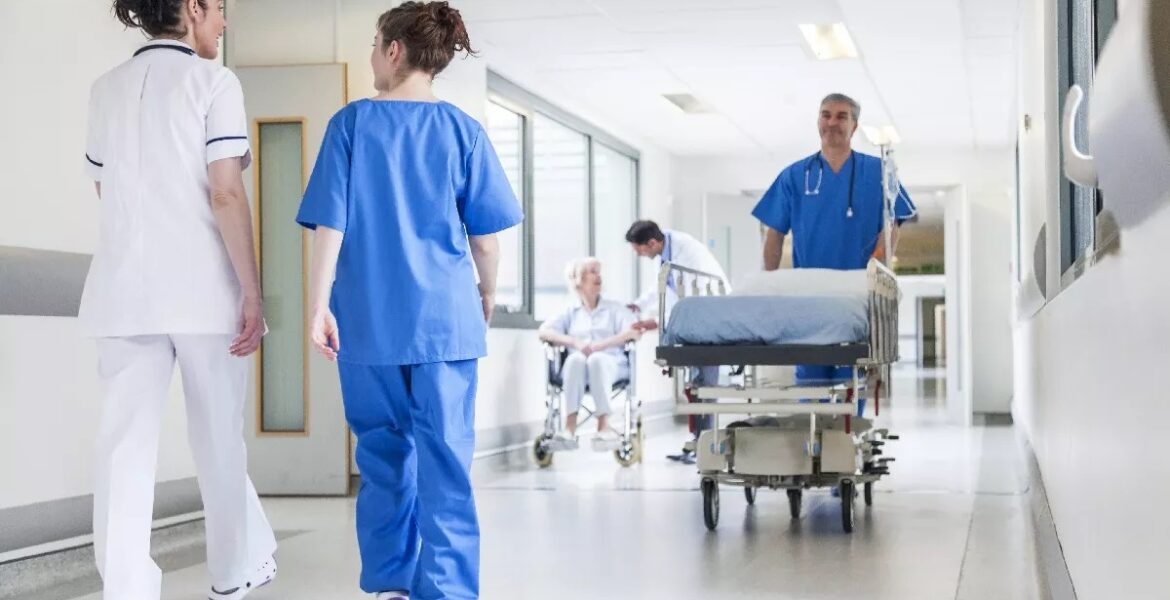Since the years of the economic crisis, the term "brain drain" has been established and describes the great wave of workers fleeing from Greece to other countries abroad. Doctors are an industry, and the mass "exit" concerns them to a great extent. It is estimated that at least 20,000 Greek doctors have left the country since 2010, seeking better working conditions and pay.
The "brain gain", i.e. the return of Greeks from abroad to Greece, as it seems, is still taking a long time for a large number of workers. However, the first steps have begun. Ygeia Mou to a doctor who has lived and worked in Britain for the last decade. However, he decided to transfer the knowledge he acquired, his expertise, and his desire to offer to Greek patients. Thus, the new year will find him in "Evangelism" after the big "yes" he said to his country and the National Health System.
Mr Christos Kontovounisios is a general surgeon specialising in colon surgery and a Doctor at the Athens School of Medicine. He did his residency at the "Red Cross" hospital when, in 2012, he was given the opportunity to complete the last six months of his residency at the specialised Oncology Hospital Royal Marsden Hospital London under the supervision of the internationally recognised Professor of Surgery of Imperial College, Mr Paris Tekkis. This is a possibility given to specialists. If they wish, they can spend the last six months in another foreign or domestic hospital. "It is extremely important that the NHS lets you go and be tested elsewhere. It is not given because due to the needs of the clinic, it may not be possible for a doctor to leave", he noted to Ygeia Mou.
It was only a short time before he was offered a salaried position in Britain. “I had a huge interest in colon surgery. Unfortunately, there are no specialisations in Greece. It's something missing. I initially worked in General Surgery and Colorectal Surgery referral hospitals in London and then trained (fellowship) in dealing with difficult colon cancer cases and specialised in robotic colon surgery as well as advanced colon cancers. and recurrences of the disease that require long and complex operations, such as pelvic eviscerations. It is a heavy and extensive surgical operation that requires a highly experienced and specialised oncology surgeon and is performed in a few specialised international centres," noted Mr Kontovounisios.
In 2016, his heart was beating for Greece. And he decided to return. However, A perfect proposal from the assistant professor at the University of Imperial College stopped his need to live in Greece.
"Since 2016, I have followed an academic surgical career with international recognition in my field. In November 2018, I was made permanent and progressed to the rank of Associate Professor,' he says, explaining that in Britain, there is an annual assessment, and you continue your academic career if you complete a certain number of publications, good results in student supervision, as well as research that can attract funding.
"From the first moment with my wife, also a Doctor-Surgeon with great expertise in the breast, we wanted to go back. However, it's hard to leave and go back when you go abroad." The right time came for the 46-year-old doctor in April 2023 when the Ministry of Health proceeded to announce Coordinating Directors in public hospitals. "It is a position with a perspective which previously did not exist. It gave me what I needed to return after a similar position had not been announced for many years in the National Social Security System", says Mr Kontovounisios.
He aspires that the 2nd Surgical Clinic, where it will be located, will not lag behind the clinics abroad and will be able to treat even the most complex cases of colon cancer. Through his many years of experience abroad, he desires to transfer the good practices applied by the health systems of other countries and to train new surgeons in his field of expertise. It is worth noting that Mr Kontovounisios has accepted the position of Coordinating Director, and the Gazette of his appointment is expected to be issued.
"I have maintained my academic activity in England, in an honorary role", he notes regarding his professional path from now on. The 46-year-old surgeon sees his collaboration with the other doctors and colleagues in "Evangelism" very positively, dispelling any myths about Greek public hospitals. "Evangelismos is one of the largest hospitals in our country that provides high-level health services, utilising the know-how and long-term scientific and administrative experience of its executives," he says and adds:
"Public hospitals in Greece are able to handle extremely serious cases. Also, the level of doctors is very high. And I tell you this as I had the opportunity to meet many foreign doctors. The Greeks are not behind in anything compared to other countries' medical potential, and I hope that the concept of 'brain gain' will continue and thrive. From then on, every health system has its pros and cons. In Greece, two important elements need to be included in education. One is specialisations. The second is that the specialist needs a more structured curriculum during the specialisation".
READ MORE: Greek saffron considered the best in the world.


